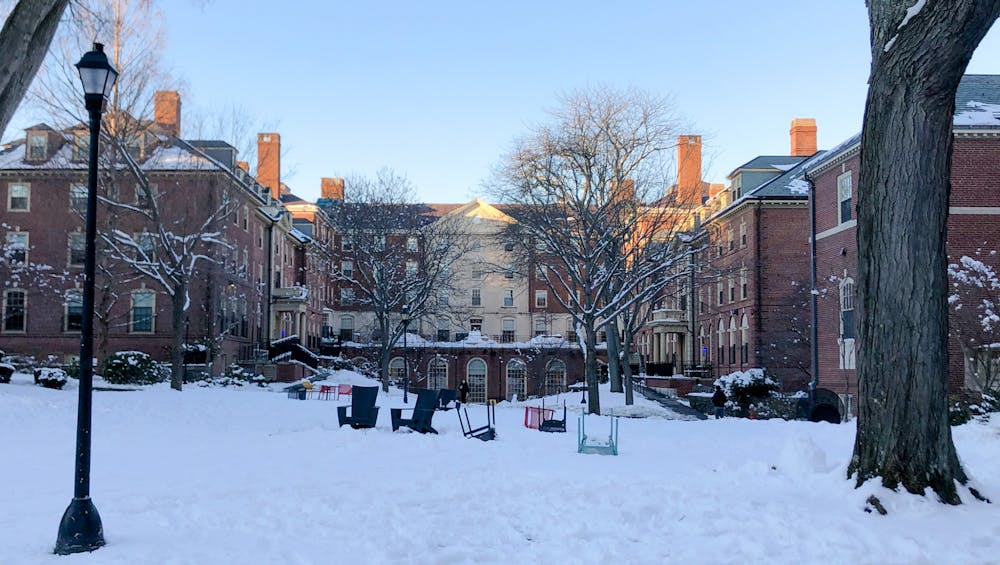Starting this spring, the Division of Campus Life streamlined its housing accommodations request process to “increase clarity and create a simpler process for all students,” according to the Office of Residential Life’s Housing Accommodations website.
University students must live on campus in lottery-selected housing until their seventh semester. But students can request specific accommodations, including certain living situations on or off campus, if they have disabilities or particular religious beliefs.
Senior Associate Dean and Senior Director of the Office of Residential Life Brenda Ice said that the overall procedure is not that different from prior years; the updated policies just clarified what an approved accommodation is and what constitutes an extenuating circumstance — a housing preference that is honored but does not count as an accommodation.
Ice explained that in previous years, many students raised concerns about not having a full understanding of the accommodations application process.
“I think that there was confusion on the part of students, and even sometimes in our language, about who was actually making the approval — the authority to decide if an accommodation was warranted and approved,” she said.
ResLife wanted to create a distinction between its role and that of Student Accessibility Services, according to Ice. When dealing with religious accommodations, ResLife partners with the Office of the Chaplains and Religious Life. For students with accessibility needs, SAS makes a recommendation based on the information the student provides them.
“Sometimes students felt ResLife or the Housing Office was making decisions,” she said. She added that students would occasionally appeal to SAS, only to discover that SAS had actually made the original decision.
“That's really why we wanted to create this formal announcement, which basically outlines how we got here and more importantly, what has been adjusted,” Ice said. “If you have an accommodation and it’s approved by SAS, we want to honor that.”
Rabbi Josh Bolton, executive director of Brown/RISD Hillel, is optimistic about the steps the University is taking to improve its accommodations process. “Religious expression is an important factor in what makes up a richly diverse campus ecosystem,” he said. “I hope the new accommodations system will better enable students to be their full selves at Brown.”
The number of people a student with accommodations can choose to live with has also changed. Housing accommodation requests for students with disabilities allow for one pull-in, which is not guaranteed, according to the StarRez Portal website. Students with religious requests who share similar practices will be placed together.
In previous years, students could “pull in” multiple peers who did not necessarily require the same accommodations.
Ice stressed that the new policy on pull-ins is designed to make sure as many students as possible have their needs met. If SAS recommends that a student live in a suite, ResLife tries to accommodate the student by allowing them to live with or near a friend.
“To give a pull-in opportunity and not have a threshold of how many (are allowed to be pulled in) takes away from our ability to meet the needs of other students who might have similar accommodations,” she said.
When asked if she expected an increased number of accommodations requests due to the pull-in change, Ice said that regardless of policy, they see an increase in applications every year, something she is pleased about.
“I actually think it's a positive when we see more (applications) because it means that more students are aware of the resources available to them,” she said.
Some students have expressed discontent about the new policies.
Yuna Shprecher ’24 understands where the changes are coming from, but is worried about potential negative repercussions. “The whole purpose of having pull-ins is to be able to be near the friends you rely on so you don't feel so isolated in your housing situation,” she said.
Shprecher is applying for accommodations that will place her with her own kitchen due to dietary restrictions. She had originally planned to be pulled in by another student who qualifies for religious accommodations, but due to the new policies, she now is applying on her own.
Imani Camara ’24 shared similar concerns. She has been approved for religious accommodations each of the last two years but is not planning to apply this year.
The changes “definitely put us off course because I live with six people right now,” she said. “We got into the housing that we did because of (our ability) to pull in people that don't belong to the same religious group."
Camara wants to live with the same people again next year, so she plans to go through the normal housing lottery now that she is no longer able to pull them in. Camara expressed frustration with the lack of warning given to students about the upcoming reforms, which she said forced her to “scramble and change (her) plans.”
Meanwhile, Oamiya Haque ’24 is applying for religious accommodations this year, despite her frustration with the changes.
Despite University efforts to provide clarity into the application process through its recent update, Haque still finds the process confusing. “I think that the accommodations process should definitely be more understandable and, in specific cases, (quicker),” she said. “If my group is granted off-campus housing, we should know as soon as possible in order to begin signing a lease.”
Ice emphasized that the changes came after research and discussion about practices at the University and other campuses across the country. ResLife is confident in its decisions, but is always open to feedback from students, she added.
She hopes students go directly to her with any concerns they have. “I think that the best way for students to have clarity around any of our processes is to engage with senior leadership,” she said. “I am always willing to find time to meet with every student and talk through their current issues or any way that I might be able to help them with their residential experience.”





